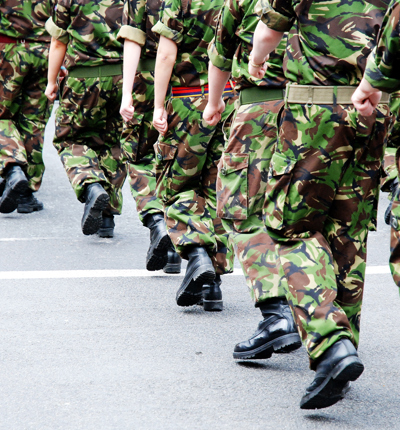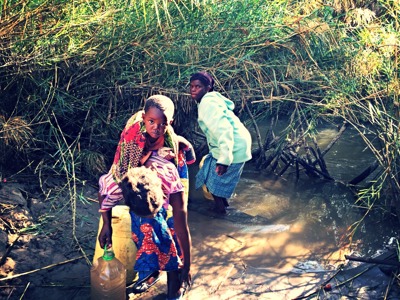
The British Armed Forces needs a culture change towards women
International team lawyer Melanie Jacques says a radical change in attitudes towards women is needed in the British military, at home and overseas.
Posted on 10 November 2025
In a week that saw an ex-Army sergeant major jailed for six months for sexually assaulting teenager Gunner Jaysley Beck, who later took her own life, and reports of a police investigation into historical sexual abuse of Army recruits during enlistment medical examinations, renewed questions are being raised concerning the pervasive culture of sexism and misogyny within the British Armed Forces.
A “male-coded” culture blighted by systemic misogyny
These allegations have emerged on the back of a previously undisclosed report by Professor Anthony King, which only came to light in July this year.
The report, described as a “cultural audit of the British Army”, spoke of an Army culture that was “coded male” and provided an environment in which active misogynists and predators could thrive. The report highlighted “modes of predation” by male service personnel, which included “door-knocking” – which often took place at night, where male soldiers knocked on a female’s door, soliciting her for sex – and the predatory use of the social messaging system WhatsApp. Prof King also found that female personnel were at risk of sexual assault in the army, with perpetrators often evading punishment.
These allegations are not new – nor are they limited to a few bad apples in the Armed Forces. The Wigston Report, which was commissioned in April 2019 after allegations of a serious sexual assault against a teenage female soldier were reported in the press, found that a significant number of service personnel had experienced “bullying, discrimination and harassment, including sexual”, but had not felt able or been able to come forward to report it.
In 2021, the Defence Sub-Committee, chaired by Sarah Atherton MP, conducted an inquiry into Women in the Armed Forces and female veterans. The Inquiry heard evidence from more than 4,000 serving female personnel, regulars, reservists, and veterans and heard shocking accounts of the bullying, sexual harassment, sexual assault and rape experienced by servicewomen. The Inquiry found that six in ten women did not report the abuse they experienced because of fear of reprisals and repercussions.
In response to the Atherton Report, the Ministry of Defence announced in March 2022 a new Zero Tolerance approach to sexual offences.
Yet, reports of sexual abuse and sexual harassment in the Armed Forces have continued to come to light. In May 2023, the Defence Sub-Committee published anonymous whistleblower evidence from MoD medics who revealed unacceptable behaviour towards female servicewomen and poor handling of complaints. In December 2023, the Observer published detailed accounts of female servicemen continuing to experience sexual abuse, sexual harassment and misogyny during their time in the military. In February 2024, a former Royal Air Force servicewoman told the BBC she locked herself in a work toilet to escape "constant" sexual harassment from her boss. She described the RAF's handling of her complaint over the harassment as "traumatic” and has since left the Force. During Jaysley’s inquest in February 2025, dozens of female soldiers described their experiences of abuse and harassment on social media, whilst several of Jaysley’s friends gave evidence about the continuing problems facing women in the army.
The UK Regular Armed Forces Continuous Attitude Survey for 2025 found that 12% of armed forces personnel reported that they had been subject to bullying, discrimination or harassment in a Service environment in the past 12 months, and only 1 in 7 of those individuals go on to make a formal complaint. These figures have remained unchanged over the years.
A culture of violence and impunity overseas
Agnes Wanjiru, a 21-year-old Kenyan mother, was last seen alive on 31 March 2012 in the company of British soldiers at the Lions Court Hotel in Nanyuki, a popular party location for British soldiers stationed at the British Army Training Unit Kenya (BATUK). Three months later, her body was discovered in a septic tank at the Lions Court Hotel. On 5 November 2019 a Kenyan Inquest concluded that Agnes had been murdered by British soldiers. Leigh Day acts for Rose Wanjiku, Agnes’s sister.
In October 2021, the Sunday Times revealed that the name of the soldier widely suspected of being responsible for killing Agnes was an open secret within the Regiment. Yet, no investigation into the murder was ever carried out by the British Army. In September this year, the Kenyan authorities finally issued an arrest warrant against the suspect, but it may be years until justice is done.
In July 2022 the MoD published its zero-tolerance approach to Sexual Exploitation and Abuse (SEA) policy, which is aimed specifically at overseas military personnel and explicitly prohibits sexual abuse, sexual activity with a person under the age of 18, and payment for sex. Despite this policy, allegations of British soldiers paying for sex and sexually assaulting Kenyan women near BATUK continue to be reported. A recent investigation by openDemocracy found that not a single serving personnel was found to have paid for sex or otherwise “engaged in sexual exploitation and abuse” since it was banned, despite at least 24 soldiers stationed in Kenya having been investigated over allegations they paid local women for sex.
Similarly, an ITV documentary, ‘The Base: A British Army Scandal’ which aired on 29 September 2024, revealed the extent of the ongoing problems in Kenya, including allegations of sexual violence against girls as young as 13.
A culture of silence and disbelief
Female personnel who are subjected to bullying, sexual harassment or sexual assault are not believed and supported the way they should be. Women do not have the confidence in coming forward and making complaints, because they are often failed by a system which lacks independence and protects its own. In Gunner Jaysley Beck’s case, the Coroner found the Army's failure to properly deal with her complaint "more than minimally contributed” to her death.
In addition, not only are women not believed, but the perpetrators often do not face consequences for their actions. Following her assault, Jaysley was encouraged to drop the matter and accept a letter of apology from her perpetrator. He was later promoted, and allowed to remain in the Army, unaffected, for years – he only announced his intention to leave the Army at the inquest into Jaysley’s death. Similarly, whilst Agnes Wanjiru’s family were desperately seeking answers, the identity of the suspected murderer was an open secret, and her death the subject of crude jokes. Until this year – some 13 years after Agnes’s death – the former soldier widely suspected of her murder was able to go about with his life in the UK, without consequences.
In both cases, the lack of meaningful accountability for the perpetrators have raised suspicions of alleged cover-ups. Similarly, the fact that the King report only came to light three years after it was prepared – and only after a Freedom of Information request – raises serious questions about the culture of silence within the British Armed Forces.
The British military owes a duty of care, not only to its female service personnel, but also to the civilians with whom they come into contact. Ongoing issues of sexual harassment and sexual abuse by male personnel are reflective of problematic cultural attitudes towards women in the military, and wider systemic issues within the British Armed Forces. It is high time they were held to account for these failures.




